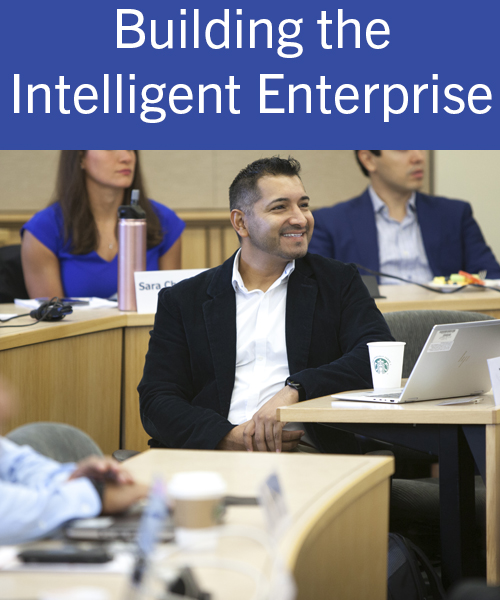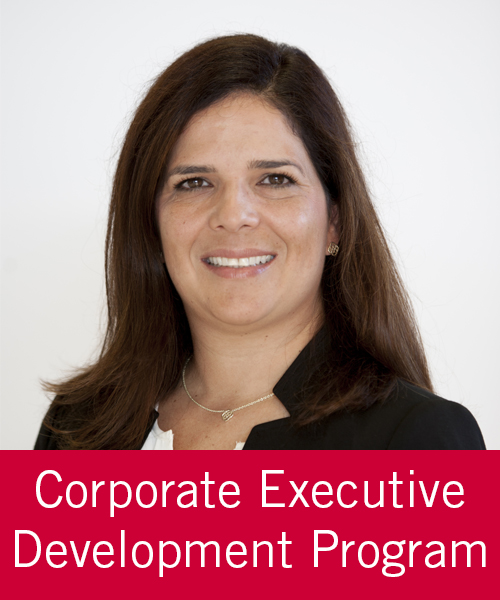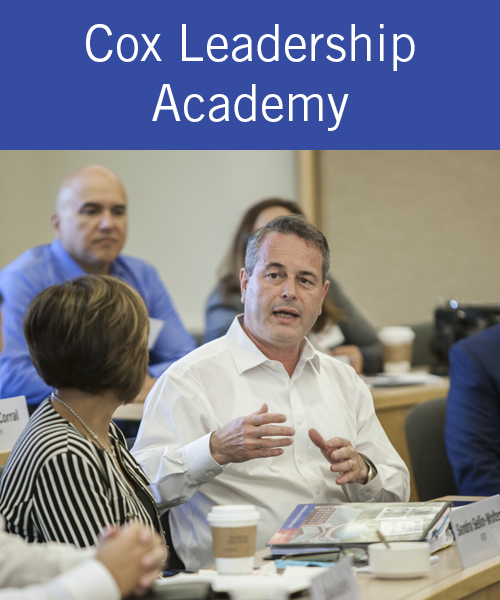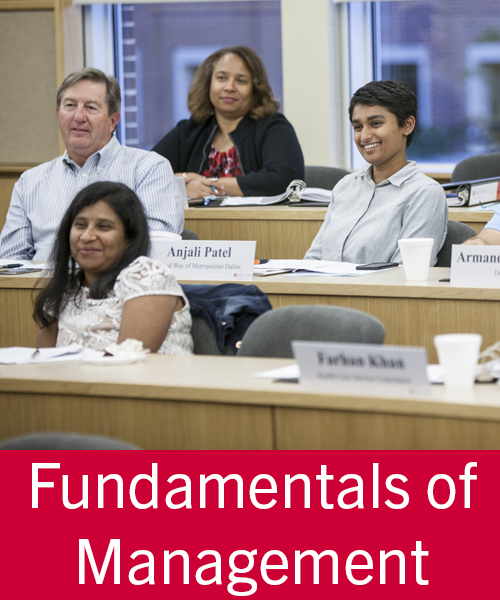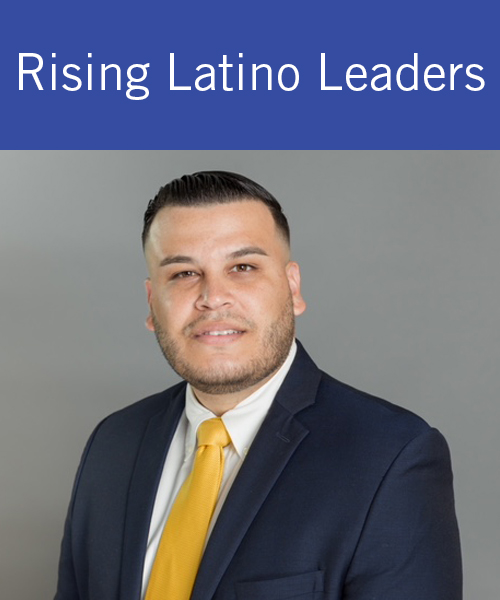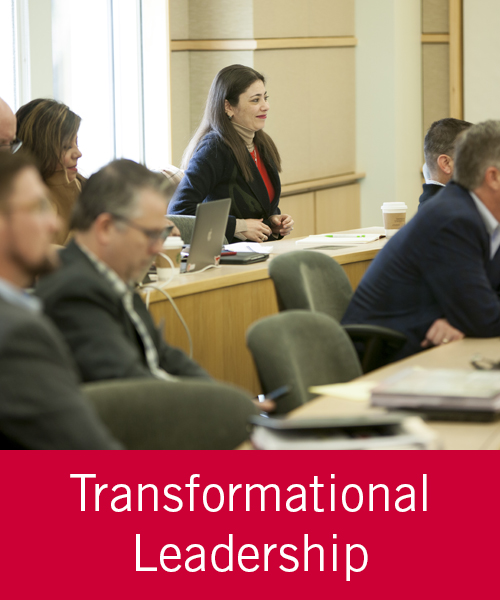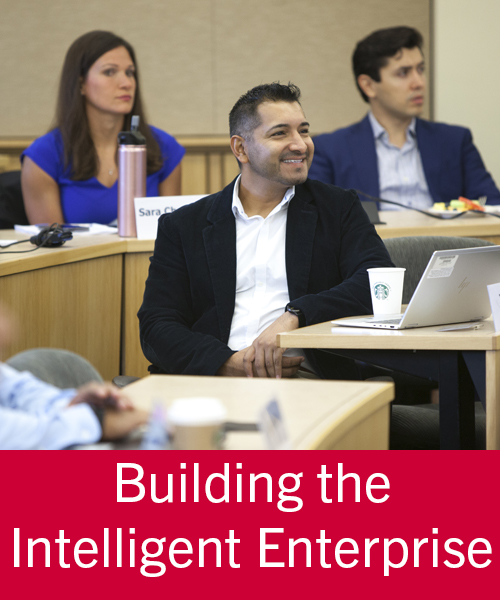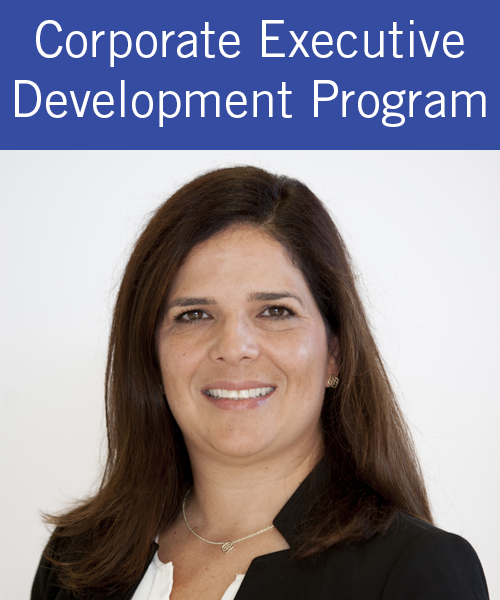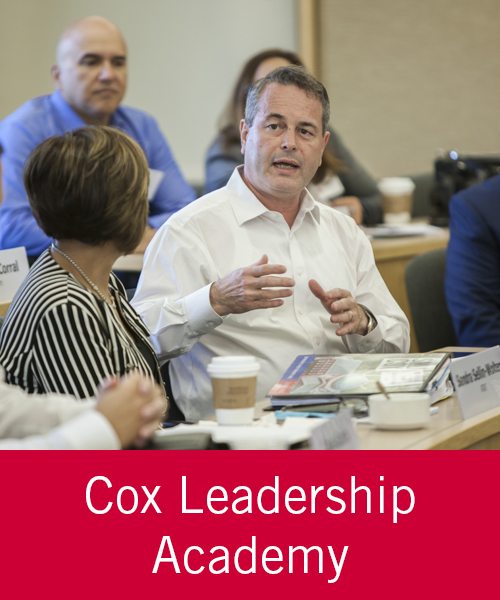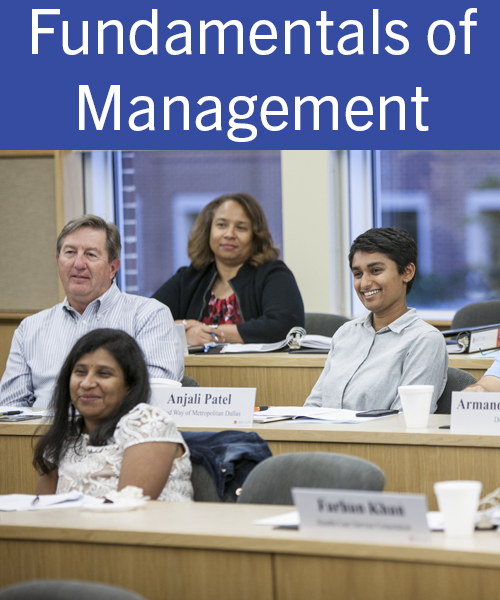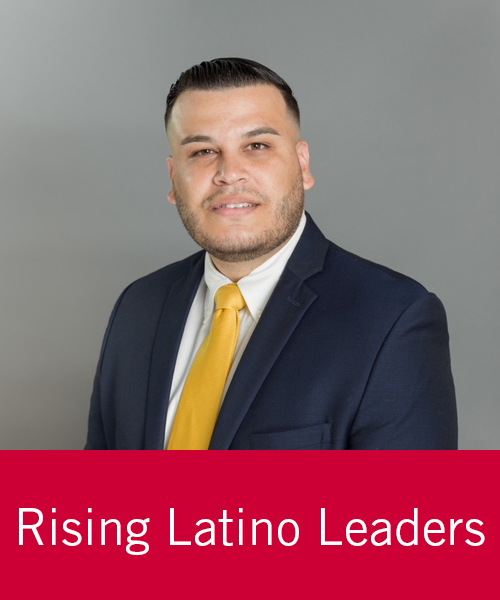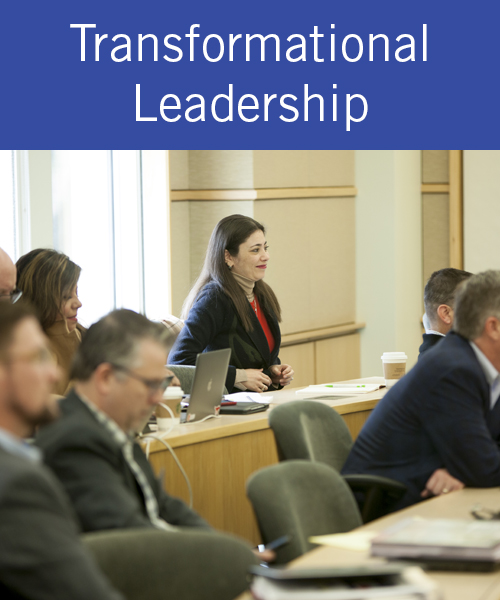Data-driven companies are harnessing the power of advanced analytics and artificial intelligence to make smarter decisions, optimize service and streamline operations. Where does your organization stand in its evolution?
Hettie Tabor, Academic Director, SMU Cox School of Business
This course will help you embrace the imperatives of digital transformation, envision where your teams and organization need to be in 10 years—and how to get them there.
Learn More
CEDP was an eye-opener: deeper self-awareness creates the space for intentional, authentic leadership. It was a rich experience that has shaped my professional life.
Carolina Roa, Sr. Land & Facilities Development Manager, DFW International Airport
Delivered in three phases over seven months, this will offer training and networking opportunities to high-potential Hispanic managers and directors preparing for executive levels of responsibilities.
Learn More
This course will introduce new ideas and techniques and challenge you to question conventional thinking. These shared challenges, together with the push to excel that each participant experiences here, create bonds that can last a lifetime.
Luigi Pecoraro, Academic Director
The Cox Leadership Academy is a 6-month program that helps grow the skills and business acumen needed to successfully fulfill the role of a senior leadership team member or enterprise level leader.
Learn More
This has been a fantastic program. It made me so much more intentional in how I approach my job and managing. The speakers were excellent and gave real, practical advice on how to manage and lead successfully. I would recommend this course to anyone.
Participant, 2018
If you're already a front-line manager or a leader moving into management for the first time, this powerful management course will arm you with what's needed to handle the toughest tests.
Learn More
The Rising Latino Leader Program equips you with all the tools needed to climb the corporate ladder, but more importantly, become a better version of yourself while doing so... this course will help you realize your full potential.
Jay Ortiz, AT&T Conexion
This innovative four-and-a-half day experience prepares participants for success in their first managerial positions and equips them to progress into higher levels of responsibility.
Learn More
I enjoyed having different instructors, each knowledgeable in a specific area. The course was filled with very practical and insightful lessons to become a better leader... it was an amazing program that helped tie all the leadership skills together.
Participant, 2019
In 10 challenging sessions, this leadership course for mid-level and experienced leaders will transform your leadership vision and approach from the inside out.
Learn More
We couldn't resist the opportunity to provide a more mindful and intentional offering that creates a safe environment for women
Ana Rodriguez, Academic Director
This three-day immersive learning experience is designed to equip women leaders with actionable strategies to overcome the hurdles women often face in the workplace.
Learn More
Data-driven companies are harnessing the power of advanced analytics and artificial intelligence to make smarter decisions, optimize service and streamline operations. Where does your organization stand in its evolution?
Hettie Tabor, Academic Director, SMU Cox School of Business
This course will help you embrace the imperatives of digital transformation, envision where your teams and organization need to be in 10 years—and how to get them there.
Learn More
CEDP was an eye-opener: deeper self-awareness creates the space for intentional, authentic leadership. It was a rich experience that has shaped my professional life.
Carolina Roa, Sr. Land & Facilities Development Manager, DFW International Airport
Delivered in three phases over seven months, this will offer training and networking opportunities to high-potential Hispanic managers and directors preparing for executive levels of responsibilities.
Learn More
This course will introduce new ideas and techniques and challenge you to question conventional thinking. These shared challenges, together with the push to excel that each participant experiences here, create bonds that can last a lifetime.
Luigi Pecoraro, Academic Director
The Cox Leadership Academy is a 6-month program that helps grow the skills and business acumen needed to successfully fulfill the role of a senior leadership team member or enterprise level leader.
Learn More
This has been a fantastic program. It made me so much more intentional in how I approach my job and managing. The speakers were excellent and gave real, practical advice on how to manage and lead successfully. I would recommend this course to anyone.
Participant, 2018
If you're already a front-line manager or a leader moving into management for the first time, this powerful management course will arm you with what's needed to handle the toughest tests.
Learn More
The Rising Latino Leader Program equips you with all the tools needed to climb the corporate ladder, but more importantly, become a better version of yourself while doing so... this course will help you realize your full potential.
Jay Ortiz, AT&T Conexion
This innovative four-and-a-half day experience prepares participants for success in their first managerial positions and equips them to progress into higher levels of responsibility.
Learn More
I enjoyed having different instructors, each knowledgeable in a specific area. The course was filled with very practical and insightful lessons to become a better leader... it was an amazing program that helped tie all the leadership skills together.
Participant, 2019
In 10 challenging sessions, this leadership course for mid-level and experienced leaders will transform your leadership vision and approach from the inside out.
Learn More
We couldn't resist the opportunity to provide a more mindful and intentional offering that creates a safe environment for women
Ana Rodriguez, Academic Director
This four-day immersive learning experience is designed to equip women leaders with actionable strategies to overcome the hurdles women often face in the workplace.
Learn More

